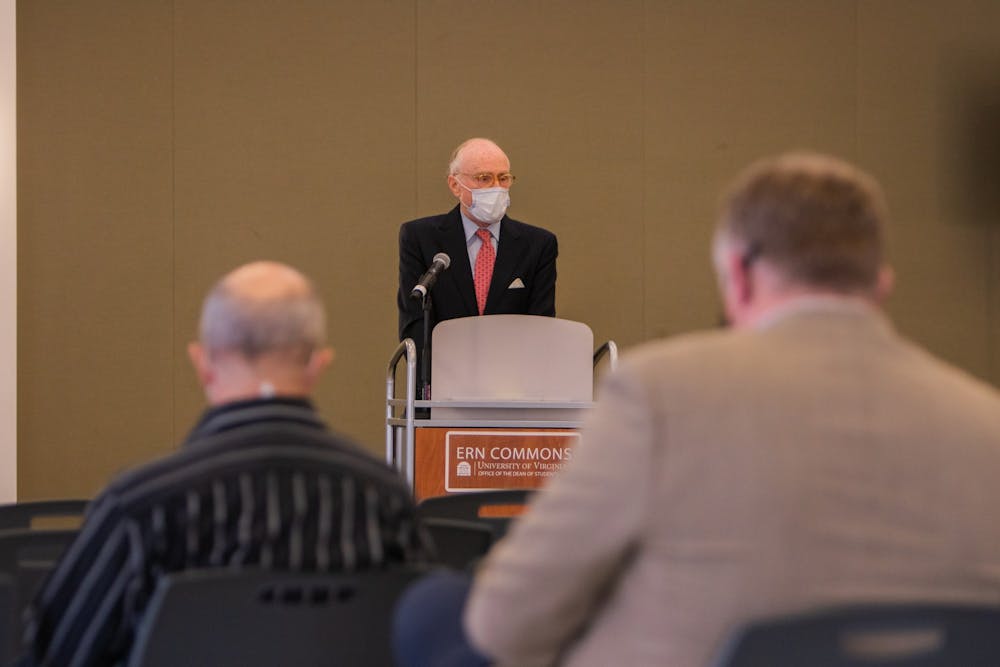The Board of Visitors held a workshop and public comment session Thursday in Ern Commons to hear community concerns about the proposed undergraduate tuition increase for the 2022-23 and 2023-24 academic years. The Board will meet Dec. 10 to vote on the proposed increase, which ranges from 3.5 to 4.9 percent.
Approximately 17 people attended the meeting, seven of whom were members of the Board.
To begin the meeting, Rector of the Board Whittington Clement said if the state government votes to increase the funding it distributes to public colleges and universities, the Board will adjust tuition to account for that.
During the workshop, Provost Liz Magill explained the University’s financial aid program. The University commits to meeting 100 percent of student financial need through its AccessUVA program, which provides need-based grants to students. Magill said the University’s approach to tuition is to maximize all other funding sources — like subsidies and individual donations — before increasing tuition.
“We look to other sources and cost efficiencies first — tuition is the last resort for us,” Magill said.
Magill and Chief Operating Officer J.J. Davis also noted the University endowment cannot be used as a funding source to offset tuition increases because its funds are limited to certain uses, such as recruiting and retaining faculty members. The University’s endowment stands at $14.5 billion.
“Many of the other funding sources are legally restricted in ways that can be used for one time or very specific expenditures, and are not a substitute for tuition,” Magill said.
Davis said the proposed increase is necessary because the University is experiencing financial pressures following its tuition freeze this year. Members of Student Council and Young Democratic Socialists of America at U.Va. advocated for the freeze beginning in Nov. 2020.
The proposed increase also results from inflation and the need to increase faculty salaries in an attempt to retain talented faculty members, Davis said. Approximately 75 cents to every dollar of tuition goes to academic instruction, student services and academic support. 10 cents on the dollar go to support the operations and maintenance, while 5 cents go towards research and the rest go to advancement and philanthropy.
Davis also named the state’s minimum wage increase and payment for front-line workers during the pandemic as a contributor to the proposed increase. The minimum wage in Virginia increased to $9.50 per hour in May 2021 and is set to increase to $11 per hour on Jan. 1, 2022 and $12 per hour on Jan. 1, 2023. The University began paying frontline workers $15 per hour in Jan. 2020.
For first, second and fourth-year students in the College of Arts and Sciences, the current cost of undergraduate tuition and fees for fall 2021 is $14,188 for in-state students and $48,036 for out-of-state students. The cost is $16,888 for in-state third years and $50,376 for out-of-state third years because of a tuition increase plan that the Board approved in 2019.
The last tuition increase approved by the Board was 2.5 percent for in-state undergraduate students and 3.5 percent for out-of-state undergraduate students for the 2018-19 academic year. In April 2019, the University froze tuition for in-state undergraduates in response to an additional $5.5 million allocated to the University from the General Assembly to incentivize a tuition freeze.
At the end of the session, Clement opened the session up to public comments, but there were no questions or comments from the public.







